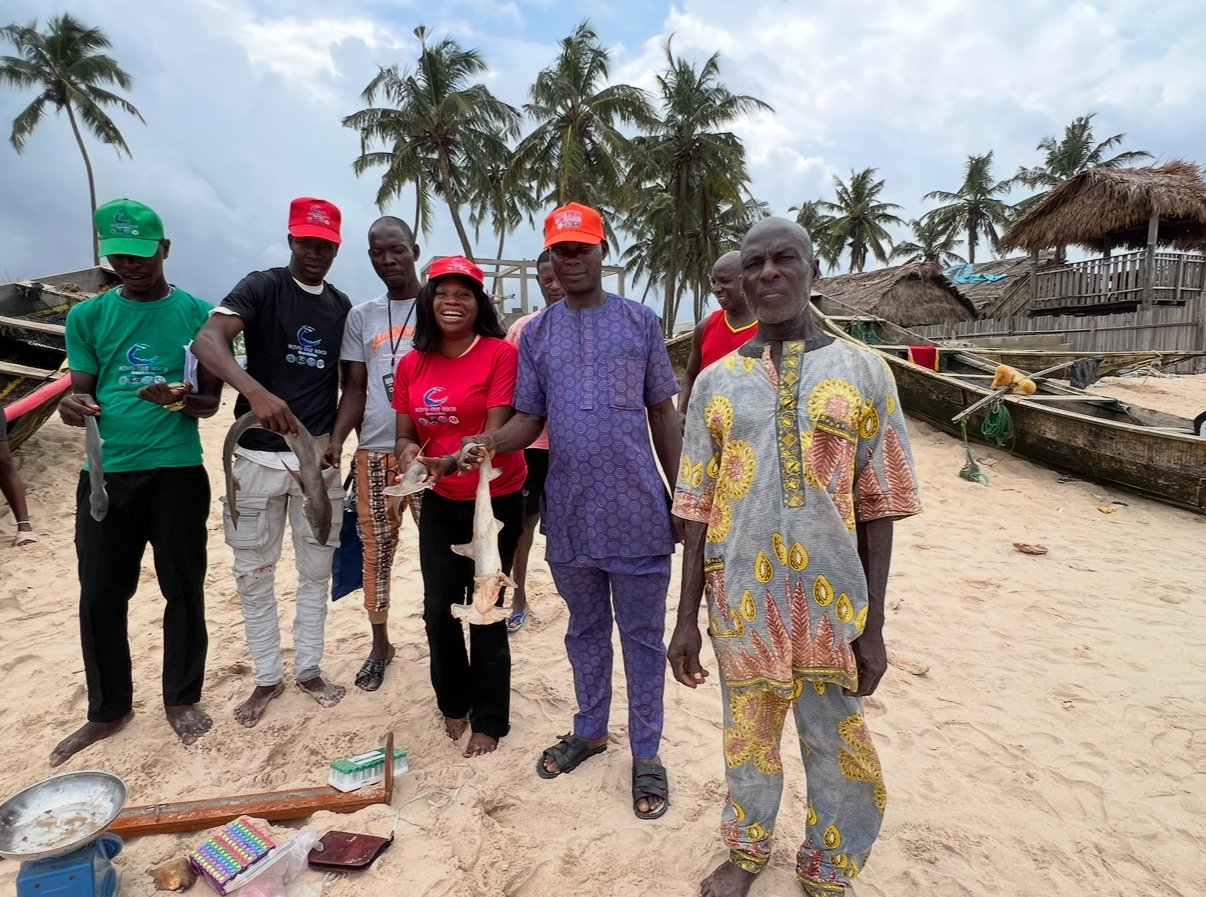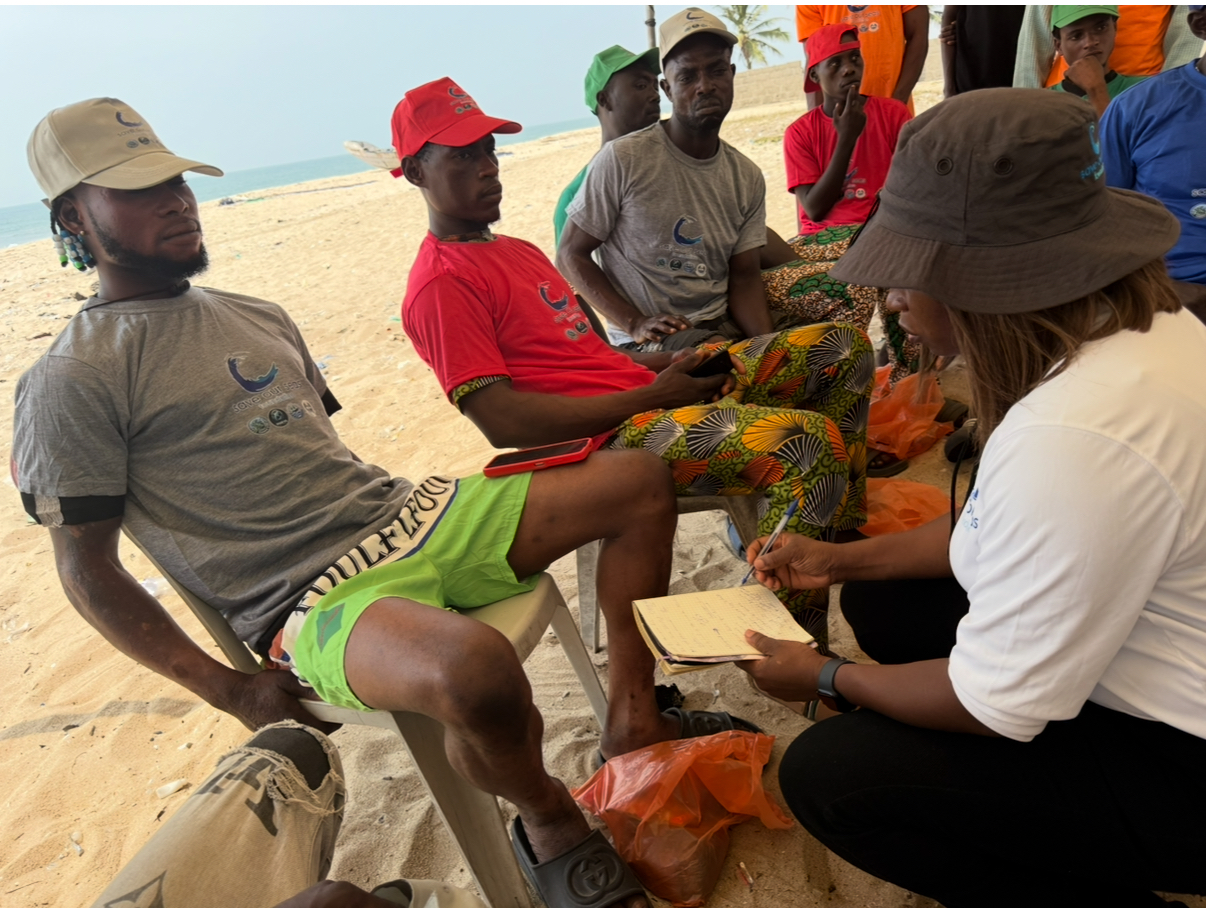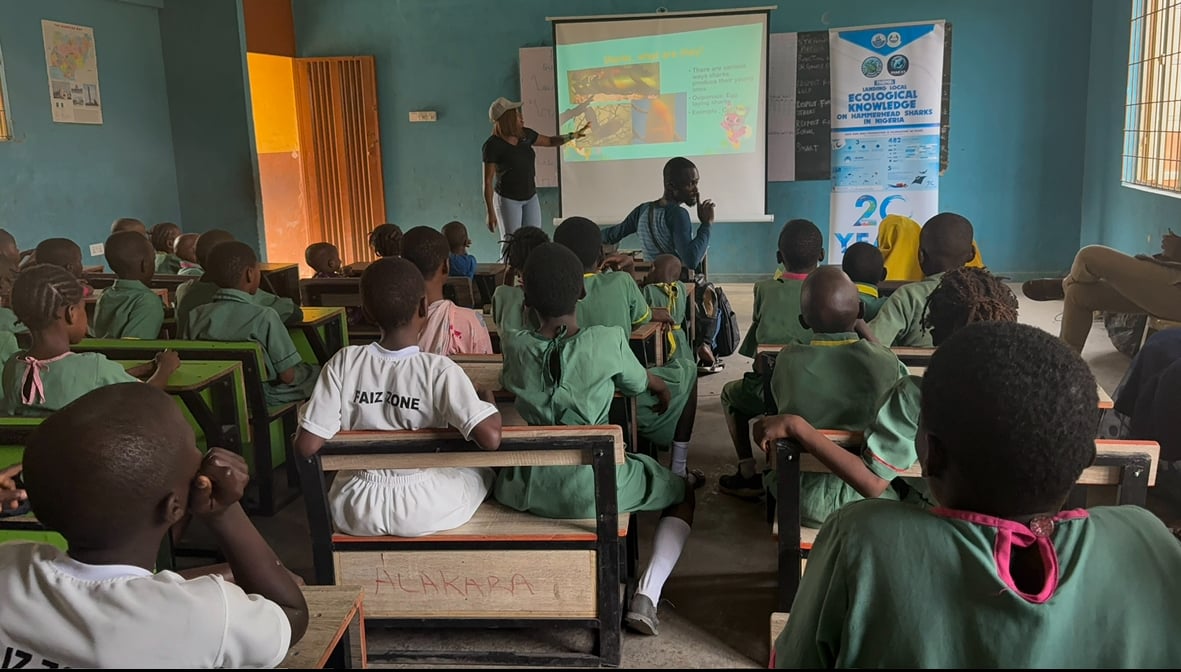Hooked on hope: empowering Nigerian fishers towards shark conservation
Including fishers in shark conservation and fisheries management is a smart move in achieving sustainability and conservation goals. Their participation ensures more robust, practical and informed decisions. In this light, we (Sharks Connect Network) visited some artisanal fish landing sites and communities across the stretch of the coastline of Southwestern Nigeria using a multifaceted approach that combined education, community engagement, policy support and sustainable economic incentives.

Assessment of landing sites and landings with community participation Photo © Lara Fola-Matthews | Sharks Connect Network
From our first visit, we had selected and trained some community residents as citizen scientists and conservation ambassadors to monitor happenings and collect first hand information during landings. Our subsequent visits involved the use of interviews and questionnaires among the fishers and fish mongers to gather more information about the scalloped hammerhead shark in terms of population, bycatch rates, and fishing practices specific to region.

Cross section of Interview session with fishers. Photo © Lara Fola-Matthews | Sharks Connect Network
Training sessions to educate fishers about the ecological importance of sharks, their role in marine ecosystems, and the consequences of overfishing were done through engagement, and with the aid of posters and brochures in their local language to ensure accessibility. Shark conservation education was pioneered in community schools to foster awareness among the younger generation.

Time out with young learners at a primary school in Lagos. Photo © Lara Fola-Matthews | Sharks Connect Network
The fishers were glad to have an avenue to share the difficulties they face. The financial aspect was strong in their mentions, and they evaluated how the financial gains obtained from shark fisheries might be a hinderance in their part towards its conservation. To mitigate these challenges, we gave an assurance to cascade their concerns to the appropriate authorities. We suggested the establishment of compensation schemes for fishers who release live sharks caught accidentally, gear exchange programs, training on value-added products from other marine species to reduce dependency on shark fishing, reward of fishers and communities, making strides in conservation efforts and the promotion of income-generating activities made from non-fishery resources.

Training on liquid soap making to assist as an extra source of income. Photo © Lara Fola-Matthews| Sharks Connect Network
